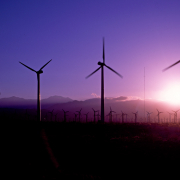Biden’s Grid Wars are a Direct Assault on the Western Middle Class
As in the Medieval past, scarcity will likely define our present, facilitated by our “net zero” economy. This brave new world will support fewer people, juggling between them expensive resources, less food, and uncertain energy production. Perhaps the biggest struggle will be over electricity, the preferred energy solution of our ruling green hierarchy.
Already electricity demand has become ever more precarious as western countries continue to place their hopes on “renewable” fuels while rejecting nuclear power and relatively low-carbon sources like natural gas, the dominant factor in reducing emissions in the West. Despite this, the green lobby, and their oligarchic backers, are campaigning against natural gas and nuclear power necessary to power their investments in electric vehicles and artificial intelligence.
The consequences of this struggle could prove to be catastrophic, both economically and socially. Businesses in the UK, according to Financial Times, already are having problems getting extra juice. Yet Britain’s shift to EVs are projected to double the demand for electricity by 2040; the government is looking to ban the use of home chargers during peak hours. By 2050, state consultants have suggested that total energy demand will skyrocket, by some estimates rising 60 to 90 per cent.
The electricity demands of artificial intelligence technology will only add to this burden. Microsoft alone is already opening a new data centre globally every three days. These power-hungry operations are expected to add from 4.5 per cent of energy demand to 10 per cent by 2035.
Oligarchic tech firms and extremely wealthy consumers won’t bear the full brunt of increased prices, but the same cannot be said for everyone else. As electricity usage rates rise, and stability of the grid weakens, the brunt will be taken by the carbon economy – manufacturing, logistics, construction, agriculture – which depend on reliable, affordable electricity. Ultra-green California, which has lost nearly a million industrial jobs and suffered stagnation across its blue-collar economy, provides a glimpse into the dark mirror of the future.
In the EU, where nearly a million industrial jobs have been lost over the past four years, business keeps migrating to countries like China and India which freely use fossil fuels to keep costs down. Britain’s path is particularly troubling; since 1990 the manufacturing sectors share of GDP has dropped roughly 50 per cent along with several million jobs. This parallels a two thirds drop in UK energy production, while consumption has fallen by only a third; three decades ago a net energy exporter, the UK increasingly depends on imports from the Middle East and other unstable regions.
To be sure UK, EU and US emissions have dropped, but the consumption of energy-intensive goods has not. Instead industry has moved from highly regulated economies to China which is on a coal plant building spree and emits more GHG than all developed countries put together. This helps produce less expensive “green” cars while the West’s own products sit, unwanted, on car dealership lots.
Read the rest of this piece at Telegraph.
Joel Kotkin is the author of The Coming of Neo-Feudalism: A Warning to the Global Middle Class. He is the Roger Hobbs Presidential Fellow in Urban Futures at Chapman University and and directs the Center for Demographics and Policy there. Learn more at joelkotkin.com and follow him on Twitter @joelkotkin.
Photo: Carol Highsmith, via Library of Congress in Public Domain.



